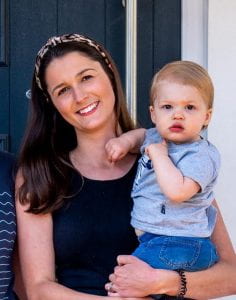Here at the University of Bristol, we’re working hard to develop the best possible blended-learning curriculum for this academic year, in response to the ongoing COVID-19 pandemic. This will see a mixture of small face-to-face group teaching and mentoring with an innovative and engaging online learning aspect.
But, what is learning online like? For many prospective postgraduate students, you may not have ever studied online, and we understand this might be unsettling and leave you wondering whether you’ll still receive high quality teaching. We want you to know that if you still want to study in 2020, you don’t have to put your postgraduate plans on pause – but don’t just take it from us.
We’ve been chatting to Katherine and Jess, current students on our MA Translation, which is taught completely online. While the blended learning curriculum will still have an aspect of face-to-face teaching, we hope their experiences of studying online will help many of you find out a bit more about online learning.


Tell us about your motivations for choosing the MA Translation…
Katherine: Having just had my first child, I was looking for a career change into a field in which working could be flexible around family life. With an undergraduate degree in French and Spanish and a passion for languages, translation was always something that had interested me. Researching Translation MA courses and looking into the career further convinced me that it was the path I wanted to take. The MA Translation at Bristol appealed to me because it was fully online, so I could take the course from home, it had part-time options that I could fit around parenting and the University has an outstanding reputation. I also love the city and visit fairly regularly so it was appealing to me that I could make use of the University’s facilities when I am there.
Jess: Having studied my undergraduate degree online with the Open University, I was already comfortable with distance learning when I started my online MA in Translation. I had different reasons for choosing to study each of my degrees online. For my undergraduate degree, it was simply because I was disappointed by the experience of going to university at 18. I felt that it was too similar to school, and I was ready to be out in the world! During my first year, I left and spent some time working and travelling. When I settled in one place after a couple of years, I started studying online, because I didn’t want to lose the freedom that I had to be in charge of my own schedule. I’ve always loved working and being self-sufficient, and I didn’t want to lose that, or to have to arrange work around uni.
Studying online suited me perfectly, and there were optional in-person tutorials where I met other students. The flexibility was great for me; while studying, I changed jobs a couple of times, trained to be a piano teacher, started a business, moved house a few times, trained to be an English teacher, and then moved to Spain. Which brings me to the Masters!
How does your programme provide you with the high-quality teaching you expect?
Katherine: Teaching on the course has been delivered in a number of ways, from video calls with my tutor, podcasts from my lecturers, audio-visual presentations delivered by other students and written course notes. I think the most effective learning I have done has been through the comprehensive feedback received on my own work as well as the opportunity to read other students’ work.
Do you also get the opportunity to work with your fellow students, despite it being an online programme?
Katherine: The Blackboard Online Learning Environment provides a forum for the group to share ideas, we all submit exercises and are actively encouraged to feedback to one another. I have learnt a great deal from other students’ work and quite often we share our individual feedback on the forum too, so we can learn from each other’s feedback. I feel that technology allows us to work together and collaborate effectively.
Jess: Another student once sent me an email after a funny exchange we had on Blackboard, and since then, we’ve been in touch regularly and will definitely meet in person once travel is back on the cards!
What’s your favourite thing about your programme?
Katherine: My favourite thing about the programme is that it can be flexible around my other commitments. I’m doing the course part-time which works for me as it allows me to complete paid work alongside the course.
Jess: It’s different from my previous experience in that interaction with other students is a big part of the course. That is my favourite part of it – we look at each other’s translations and discuss them on Blackboard. The tutors also join the discussions, so we receive regular feedback from them.
Have you had any problems with the online aspect of the programme?
Katherine: The only slight challenge I have come across is access to relevant course books that are not online. The vast majority of the necessary material can be found via the library online so this is rarely a problem, but I would just say that it takes a little organisation to check which books you may wish to access that aren’t online. You can then submit a request to the library who will post them out to you.
Do you have any tips or advice for prospective postgraduate students who may be daunted by the blended-learning approach for this year?
Katherine: My advice would be to consider the positive aspects that online learning can bring, such as the flexibility. It’s also important to take into account that the skills being learnt through online learning will be extremely useful in the majority of the careers/study that students move on to. So many careers and study opportunities require competence in remote working, using technology and learning to familiarise yourself with different online platforms. I also feel that successful completion of online learning demonstrates your motivation, organisation and adaptability to potential future employers.
Jess: If you’re new to studying online and you’re feeling nervous, or you’re worried about what you might be missing out on, I would urge you to think about how to make the most of the benefits! You can still meet your fellow students and form real friendships. As long as you manage your time and keep up with your work, studying online is so rewarding and gives you the freedom to develop other interests and areas of your life. I hope you enjoy it!
We are regularly updating our COVID-19 webpages for prospective students. Visit www.bristol.ac.uk/students/coronavirus/applicants to keep up with the latest developments. If you have any queries, please don’t hesitate to get in touch with us at choosebristol-pg@bristol.ac.uk.

